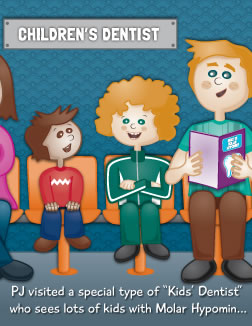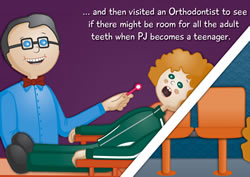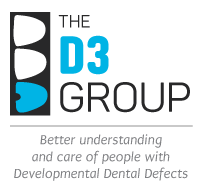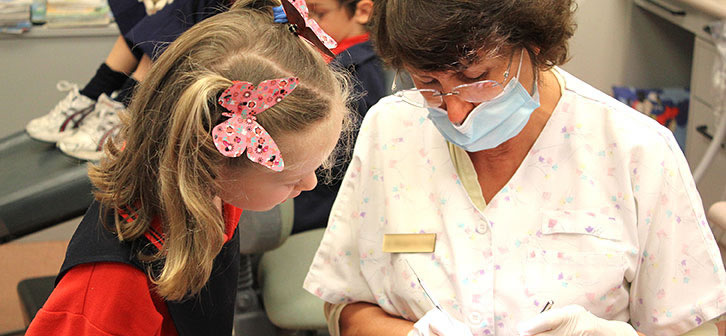WHO SHOULD WE SEE FOR D3 ADVICE AND TREATMENT?

Molar Hypomin and other D3s of possible concern are usually first spotted by the School Dental Therapist or your Family Dentist (also called General Dentist). Chances are, if you've been directed to this website, then the Therapist or Dentist concerned is well up to speed about Molar Hypomin and will be able to give you excellent guidance about the best path to follow.
Mostly their advice will depend on the severity of your child's case. With mild Molar Hypomin, the Dentist or Therapist is often willing to manage your child's needs themselves because the necessary treatments are pretty much standard (read more). In more advanced cases, consultation with someone super-experienced in handling Molar Hypomin is likely to be recommended because a number of complexities frequently crop up – usually you will be referred to a Paediatric Dentist and/or an Orthodontist.
Early attention to Molar Hypomin is important to ensure the best long-term outcomes, both for the defective teeth and for your child's general well-being. Children should visit a Dental Therapist or a Family Dentist at least once a year for general check ups. However, if you are concerned that your child may have Molar Hypomin (based on WHAT DOES IT LOOK LIKE?), we recommend that you make an appointment as soon as possible.
WHY SEE A PAEDIATRIC DENTIST?

Paediatric Dentists, often called "kids’ dentists" or paedodontists, have done several years of extra training to help them understand and deal with trickier problems including advanced Molar Hypomin. Besides providing advice about your child's dental development and treatment needs, these specialist dentists also provide services that enable complex treatments to be done with minimal anxiety and stress – both on your part and your child's (read more). Seeing kids with Molar Hypomin is a routine part of a Paediatric Dentist's day and so they are readily able to provide specialist guidance for your Family Dentist and you. Alternatively, if you prefer, they can manage your child’s specific treatment needs themselves.
Some Family Dentists also have a special interest in treating kids with Molar Hypomin, so don't be surprised if yours is comfortable to go it alone. But of course if either party has any doubt, you can always seek a second opinion.
WHY SEE AN ORTHODONTIST?

Besides learning how to "straighten teeth", Orthodontists receive lots of extra training about child growth and dental development because these subjects play a key role in many treatment situations. Their specialist understanding of these subjects can be very helpful when planning the care of young kids with advanced Molar Hypomin, particularly when there is a possibility that the best course of action might involve dental extraction.
Orthodontists are very used to seeing kids with Molar Hypomin and helping Dentists decide whether "dodgy" teeth are worth keeping. Often a key question is whether the loss of a tooth will be helpful or detrimental to your child's "bite" (occlusion) when they grow up – if for example it looks likely that your child will have an overcrowding problem, then in some cases the extra space freed up by extractions might be beneficial. Besides giving such advice, Orthodontists may also become involved in guiding the alignment of your child’s teeth if extractions go ahead.
FINDING DENTISTS AND DENTAL SPECIALISTS

Often your Family Dentist will be able to recommend specialists that he or she is used to working with on Molar Hypomin cases.
However if you need to find a Paediatric Dentist or Orthodontist in your area that’s well-informed about chalky teeth matters, a good place to start looking is the “We Fight Chalky” Teeth specialist network (see here, currently in Australia & NZ only).
Good alternatives can be found using the following online resources (equivalent databases exist in many other countries):
Australia
- Australian Dental Association – Find a Dentist
New Zealand
- NZ Dental Council – Search for Oral Health Practitioners

